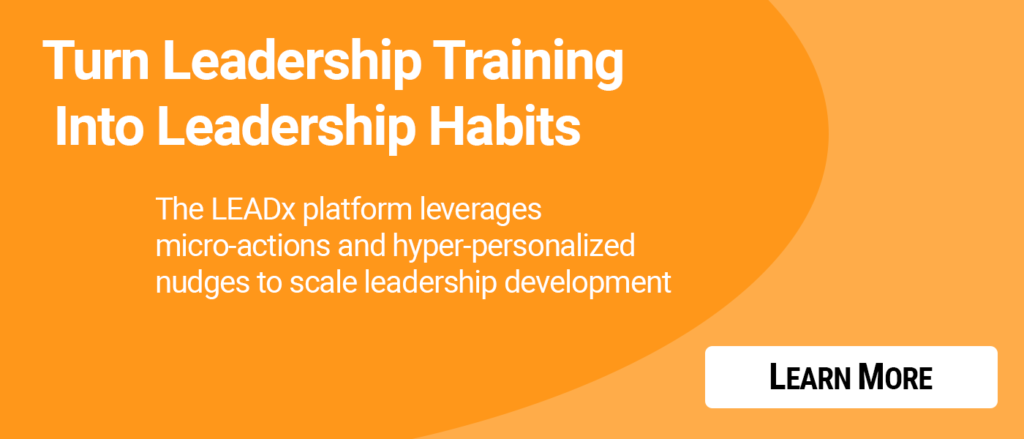
Hello, my name is Kevin and I’m an advice-giver.
Too often I jump in with a solution to the wrong problem. Because the first challenge mentioned wasn’t the root issue.
Or I’ve understood the real problem, but give bad advice formed by my knee-jerk framework and bias.
The biggest problem of all is that solving team members’ problems doesn’t develop them. It might solve the problem-of-the-day, but then they’re back tomorrow with a similar problem.
We mean well, right? When we give advice it always starts from a good place. And we often do know the right answer because, as the boss, we often have more experience and knowledge than our team members. And if we’re being totally honest, giving advice and solving other people’s problems makes us feel good. Look how smart I am! Look how valuable I am! Oh and this one…I feel so needed.
Thankfully, Michael Bungay Stanier can help. Stanier, of course, is the author of The Coaching Habit (the all-time best selling book on the topic of coaching), and his new book is The Advice Trap: Be Humble, Stay Curious & Change the Way You Lead Forever. He says there are three different personas our “advice monster” takes:
- “Tell It” Advice Monster
- “Save It” Advice Monster
- “Control It” Advice Monster
I recently had the chance to interview Stanier for my podcast to get his, ahem, advice about taming our advice monsters. He explains that once we understand the hidden downside, the inevitable punishments, that go along with giving advice we can finally wrestle the monsters to the ground and to stay curious a little longer. (The transcript below has been edited for space and clarity.)
Kevin Kruse: What is the Tell It advice monster all about?
Michael Bungay Stanier: Tell It is the noisiest of the three advice monsters. Tell it has walked into the room and gone, “I'm convincing you that the only way you add value is to have the answer. In fact, if you don't have all the answers, you fail.”
What's the advantage of being the person with the answers all the time? You feel like you're the smartest person in the room. You sense that you are critical to everybody. Everybody looks at you with that kind of glow in their eyes. Oh, he's so smart. She's so clever. You feel, even if you're getting old like I am, you're like, “See, I haven't lost it yet. I've still got something to offer this team, this organization, this part of the world. I've got some suggestions there.” You've got that high status of being the person people go to ask for solutions.
Kruse: So far, that sounds pretty good. What’s the downside of Tell It Advice?
Stanier: Those are short term wins. They're a little, let's called it ego-based, to get into kind of a bit of therapy speech. Because balancing out the prizes are punishments.
So what do you think the punishments You become the bottleneck. You become exhausted. You become inefficient because actually your advice is not nearly as good as you think it is. There's a deeper thing, which is the act of disempowerment. You're putting out a really key message, “Hey everybody else, you're not smart enough to figure this out yourself. You're not good enough. I'm better than you are.”
Kruse: That’s sobering. What about the Save It advice monster?
Stanier: Save It is a little quieter than Tell It. It put’s his arm around you and convinces you that your primary job is to make sure that nobody ever stumbles, struggles, fails, finds it difficult, mucks it up, or makes any mistakes. Your job is to save everybody. Your job is to rescue everybody.
There are short term wins. Save It makes you feel noble. Save it makes you have that self-identity of look at me, I care for everybody. I'm the person with the big heart in this organization and this team. And of course, the prizes for other people are like, “This is fantastic. You know what? I can be sub-optimal, I can be sub-par and nothing even happens because there's somebody always cleaning up after me.”
Kruse: And what’s the downside of the Save It advice monster?
Stanier: First of all, it is exhausting. You are exhausted trying to rescue everybody. It's impossible. And you're opening your veins and bleeding into the ground in an attempt to keep everything going, and it doesn't actually work.
And here's the other thing. Rescuers like you create victims, you actually are disempowering others in the very act you're trying to help others. Somebody once said, “wisdom enters through the wound.” But you're not letting anybody get wounded. You're not allowing any wisdom to come in. You're not allowing anybody to take responsibility. You're not allowing accountability to flow through to the appropriate level where it should sit in your organization. You are infantilizing the people who are around you.
Kruse: That brings us to the Control It advice monster…
Stanier: Control It is the sneakiest of the three. It convinces you that the only way you win is by you maintaining and holding onto control at all times. It's your white-knuckled hands on the steering wheel. You need to keep control of everything from the start through the middle, through the end. If you step away for a moment and invite others to step in and step up and lean in, if you delegate control, if you give up control, if you empower other people, chaos will come. And of course, when chaos comes, failure is not far behind. Don't give up control even for an iota or else we will all fail.
What are the prizes of Control It? With Control It, you've got that sense of status, that sense of power, that sense of security, that sense of we'll keep it safe around here. That sense of I'm not made anxious by any kind of unexpected things coming in. That sense of I'm not being bothered by other people's opinions and other people's insights.
But there are punishments as well, for you, for them, and for your organization. It is exhausting to try and maintain control over all those things that you can't actually control. You disempower everybody around you. You don't allow the future in. You're unable to be agile. You're unable to adapt because you're like, “I've got a plan and we are working the plan.”
Kruse: To be clear, you aren’t saying we should never give advice, right?
Stanier: This whole conversation between us is me giving you advice. So I'm not against advice. I am against your reflexive, habitual response to make advice giving the first thing that you always do. You won't change this until, as a first step, you begin to see your own advice monster and see the prizes and punishments of your current behavior. Then you can begin to change to become more coach-like. To stay curious a little bit longer, and move to advice-giving a bit more slowly.
Take Action
If you are feeling exhausted as the go-to problem-solving advice-giver, if you want to empower your team members and help them grow into their full potential, you can go to the Advice Trap website and answer 20 short questions to diagnose which of the three advice monsters has the strongest hold on you (mine was Control It). You’ll also receive a personalized report with specific tactics you can use to tame your monster.
Imagine what would happen to our team’s engagement, development, and long-term success if we could all learn to stay curious a little bit longer.







